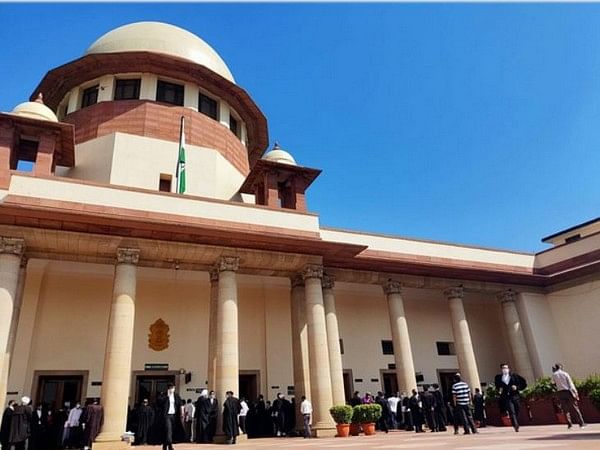“There ain’t no such thing as a free lunch,” a fundamental management principle that the irrational promise makers, blinded by lust for power, find challenging to comprehend.
The on-going debate on freebies has marked a divide across the political spectrum, with some patently on one side, and others unresolved, oscillating with calls for electorate demands. All find themselves involved in this discourse of branding freebies as ‘good’ or ‘bad’. Ironically, there is no consensus on a clear definition of the contested term.
Warning the voters about the dangerous trend of ‘buying people’ by distributing free stuff funded by the public, Prime Minister Narendra Modi has quite appropriately called this frivolous activity of freebies distribution as ‘Revdi Culture.’
Distributing freebies have been an indispensable part of India’s electoral politics. Before every election, parties have made myriad promises of free water, electricity, TVs, laptops, tablets, bicycles, scooters, gas cylinders among other things. Such instances serve as great reminders of how essential it is to draw differentiating lines between freebies and welfare schemes. We can’t brush away legitimate welfare programs as freebies or accept public bribery cloaked as welfare measures. Distinguishing between freebies and essential services will require the proper context of time, place and the government’s fiscal space. The Directives Principles of State Policy in Part IV of the Indian Constitution says the state should promote the welfare of people Below the Poverty Line (BPL) or who cannot progress without support. Evidently, election manifestos of political parties often do not honour such distinctions. On what terms can free electricity, water, waiver of pending bills and loans, and other such doles be accounted for valid expenditure of taxpayers’ money?
Instead of achieving long-term development goals through the public distribution system, employment guarantee schemes and state support for education and health facilities, freebies and handouts serve as an easy shortcut to woo voters and conceal the failures of the incumbent government. Being pejorative on moral grounds and discouraging voters from making intelligent decisions, these futile expenditures done under populist pressures boil down to how much a political party showers the public with freebies disguised as incentive measures for socio-economic upliftment. Acting as a veiled attempt to delegitimise state welfare policies, the prevalence and popularity of ‘freebie politics’ is an indictment of our economic policy and an abject failure to embolden policymakers to invest in human capital. Hence, winning elections and providing good governance are two disparate things.
Also read: One state’s freebie can be another state’s welfare
From economic perspective
One may ignore the moral but not the economic implications of freebie politics, which poses a tremendous fiscal threat to the state governments in India, especially the heavily indebted ones. The debate on freebies cannot be seen as indifferent to the fiscal health of the states. With the end of the Centre’s GST compensation payouts and more significant imposition of cesses, the share of the tax revenue that the Centre gives to the states has significantly dropped. This slowdown in tax revenue, coupled with high committed expenditure, expanding contingent liabilities, the ballooning overdue of PSUs, the rising spending on non-merit freebies and the subsidy burden, have stretched state governments’ finances, which Covid-19 already exacerbated. From undermining credit culture, distorting prices through cross-subsidisation, eroding incentives for private investment, to disincentivising work at the current wage rate causing a drop in labour force participation, freebies seem to have taken a heavy toll on the finances of states. If such a culture continues, the fiscal conditions of the most indebted state governments are expected to deteriorate further, for their debt stock is no longer sustainable, with debt growth outpacing Gross State Domestic Product growth in a few cases.
Such assessment of financial health is also a reminder of the critical importance of public debt sustainability, especially if seen against the backdrop of the recent Sri Lankan crisis.
The Supreme Court of India, in 2013, said that the budgets for freebies are going above regular budgets, thus disturbing the level playing field and shaking the roots of free and fair elections to a large degree. Not every political party will have access to public funds. This stands at odds with Article 324 of the Constitution, which states that the Election Commission is charged to conduct free and fair elections, raising questions about how ethical the practice of giving freebies is, as some may argue, them being akin to offering bribes to your electorate.
Given the parlous situation, the need for an urgent and effective solution is dire. The impact of freebies should not be looked at with a political lens but should be understood from an economic perspective. It is essential to differentiate between freebies, and justifiable and specifically targeted social sector expenditures, ensuring that the beneficiaries are empowered permanently to forgo such benefits. In the long run, states must strive to increase the stock of productive capital, create long-term assets, generate revenue, and boost operational efficiency whilst conducting fiscal risk analyses and stress-testing their debt profiles regularly.
A robust, financially sustainable and operationally efficient economic system needs to be developed that uses resources to invest in education, health, agriculture, R&D and infrastructure, which will help create more jobs and reduce poverty on a sustainable basis.
The author is a student at Atal Bihari Vajpayee-Indian Institute of Information Technology and Management in Gwalior. Views are personal.



